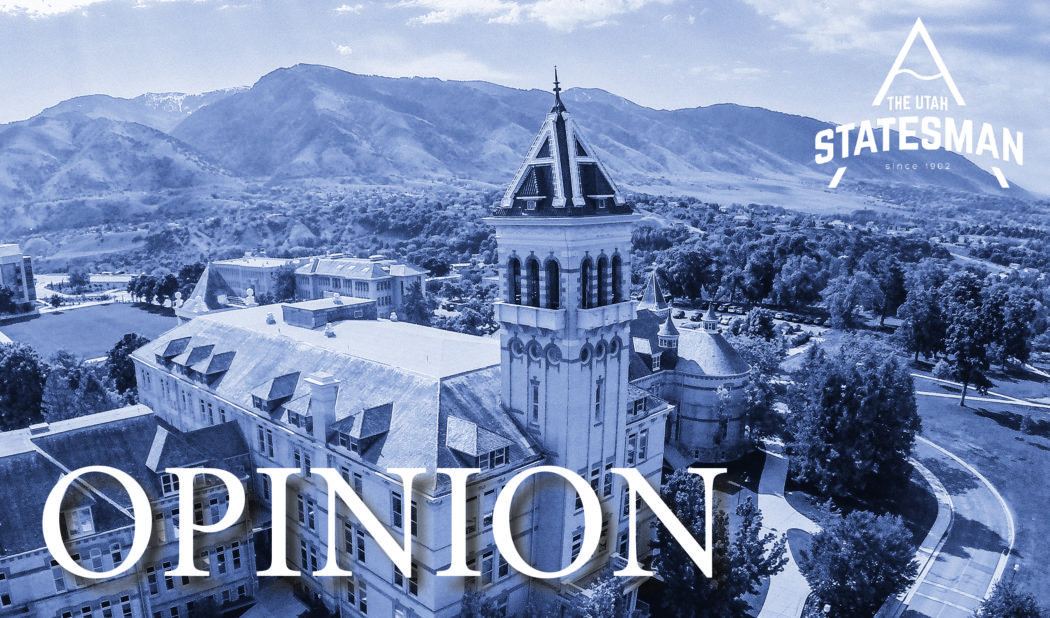COLUMN: Am I my brother’s keeper?
Editor’s Note: To submit a response to this column, or submit a letter to the editor on a new topic, email your submission to opinion@usustatesman.com
Freedom, however, is not the last word. Freedom is only part of the story and half of the truth. Freedom is but the negative aspect of the whole phenomenon whose positive aspect is responsibleness. In fact, freedom is in danger of degenerating into mere arbitrariness unless it is lived in terms of responsibleness. That is why I recommend that the Statue of Liberty on the East Coast be supplemented by a Statue of Responsibility on the West Coast.
— Viktor Frankl, Man’s Search for Meaning
Our individualist and capitalist society has been the source of almost all of the comforts we experience in modern life. However, as great as capitalism’s benefits have been, its overwhelming emphasis on self interest has led to a commonly held belief that it is only one’s self that matters, neglecting the community at large. Are we not our brother’s keeper?
We are all capable of extreme malevolence. If we do not take responsibility and acknowledge the existence of evil and our capacity to perpetuate it, it is possible that we will one day be subject to ideological possession just like the Soviets and Nazis were. Part of taking on responsibility means recognizing that there is a part within all of us that is capable of evil, and then checking it. It’s a very old idea; it’s the same idea illustrated in Dante’s Divine Comedy, namely that you need to go through hell before you can partake in any form of redemption.
Aleksandr Solzhenitsyn was a victim of the Soviet gulag concentration camp system and recorded his experiences in The Gulag Archipelago. In the book, he goes into great detail to explain the atrocities that the Soviet authorities committed. Interrogators would leave prisoners in boxes full of bedbugs for 12 hours at a time, prison guards would tie prisoners to logs and roll them down this one flight of 365 stairs in the Solovetsky camp, prisoners would be beaten for the guards’ entertainment, among many other unimaginable forms of torture. But here’s the crazy part — Aleksandr Solzhenitsyn did not blame them for their behavior. He recognized that if one or two circumstances had been different in his life, then he would have been the perpetrator and probably would have enjoyed it. “If only it were all so simple! If only there were evil people somewhere insidiously committing evil deeds, and it were necessary only to separate them from the rest of us and destroy them. But the line dividing good and evil cuts through the heart of every human being,” he said.
Security and threat analysis experts such as Gavin De Becker have come out and stated that there is no such thing as a random act of violence. Almost all incidents have pre-incident indicators. This indicates that unless someone is truly pathological by birth, there is usually a causal element when it comes to violence. Preliminary empirical data indicates that being a victim of bullying as an adolescent is potentially a causal factor for adulthood psychopathy. Imagine if people took responsibility for the well being of other people. Imagine if we taught children that their behavior is capable of sending another one down a path of resentment to the point where they could commit an atrocity.
Our behavior impacts other people.
Freedom is dangerous. We often tend to conflate the right to do something with sponsorship of it. I do not think that this message is stated enough. Whenever something is legalized, said behavior increases. For example, just because marijuana is legal does not mean that it is a good decision to use it. Freedom provides us a domain in which we can act, it does not identify the range in which we should act. As Frankl said, freedom is a danger unless we use it responsibly. Likewise, we certainly have the right to ignore each other and continue to exist in a purely self-interested way, but that is not the proper way we should conduct ourselves.
We need a paradigm shift and to once again look at the world through the lens of individual responsibility. Fyodor Dostoevsky states in his novel The Brothers Karamazov that, “There is only one salvation for you: take yourself up, and make yourself responsible for all the sins of men. For indeed it is so, my friend, and the moment you make yourself responsible for everything and everyone, you will see at once that it is really so, that it is you who are guilty on behalf of all and for all.” We underestimate the degree to which we impact those around us and the overall world. We need to return to the adoption of individual responsibility to ensure maximum human well-being.
In my own life, I have tried to embrace the philosophy of Solzhenitsyn and have admitted to myself that oftentimes I cannot blame another for their behavior even if it’s hard to do so at times. While it’s difficult, in those situations in which I’ve approached from this perspective, a mindset of understanding, things have seemed to work out well in the end.
Things especially tend to go well when I assume guilt for whatever problem arises, even if another person “started it.” Put behind trivial matters and figuratively speaking, carry your cross. Take responsibility for the world. Not only is this what is best for society, but as Viktor Frankl said “the way in which he takes up his cross, gives him (man) ample opportunity — even under the most difficult circumstances to add a deeper meaning to his life.”
Kristian Fors is a student at Utah State University majoring in Finance and Economics and is an opinion columnist for the Utah Statesman. He can be reached at krfors@gmail.com.

